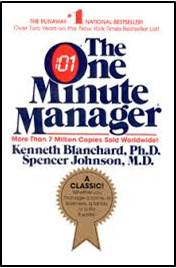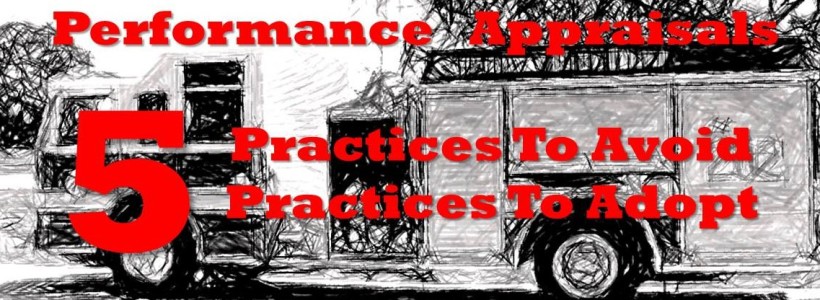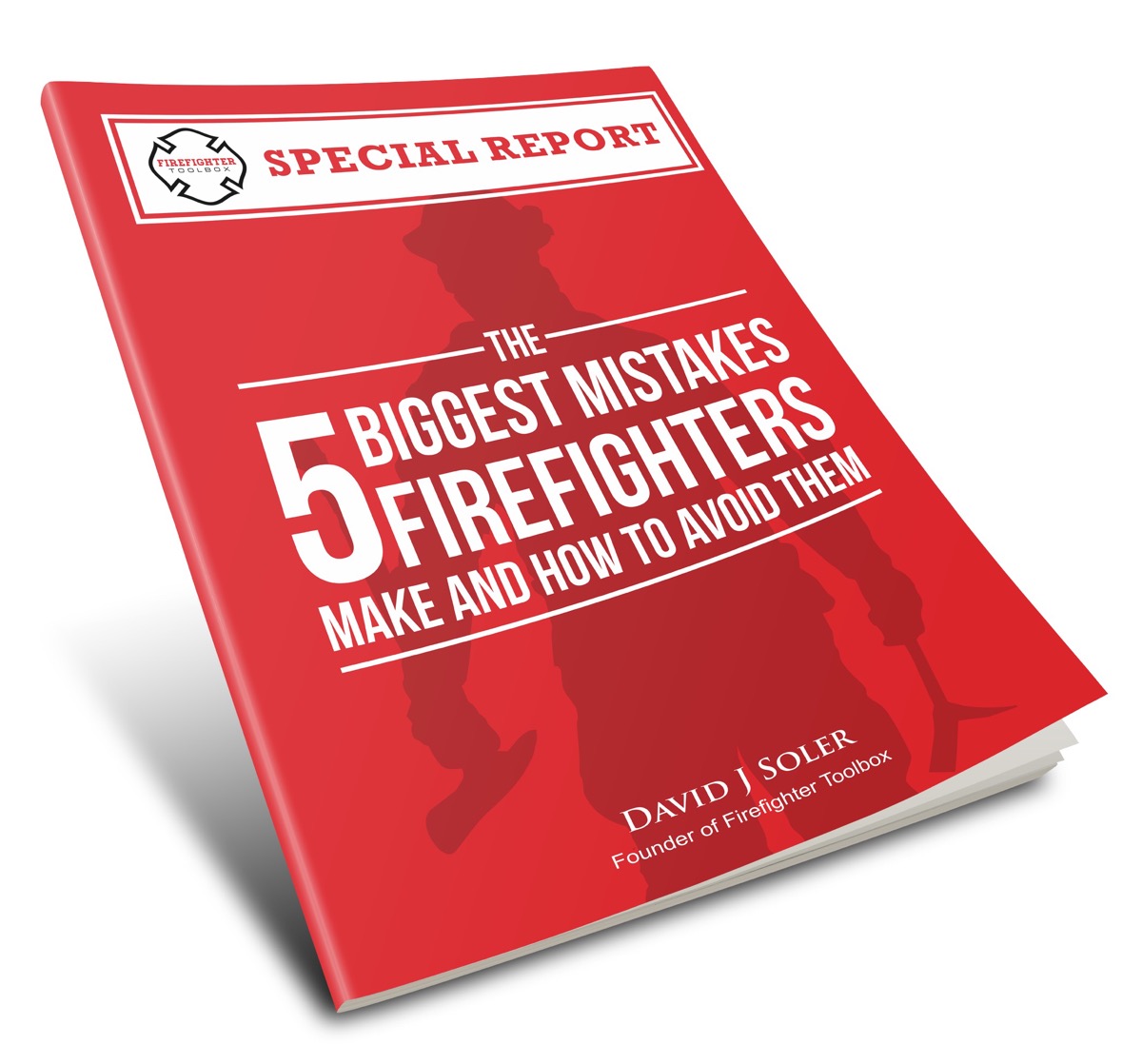Do’s & Don’ts For Performance Appraisals: 5 Practices To Avoid – Part 1
“People don’t mind being challenged to do better
if they know the request is coming from a caring heart.”
— Ken Blanchard
Firefighters grow when they follow great leaders, but they also grow by participating in regular performance appraisals. Performance appraisals are a great (and necessary) tool to develop future greatness in firefighters, but when conducted improperly they can damage a firefighters motivation for the profession.
I once heard that performance appraisals are like wearing seat belts in a fire truck. Most officers think they are a good idea, but many feel awkward using them.
Just like wearing seat belts is a life saving tool, conducting a proper performance assessment can be a morale saving tool.
It’s time to take the steps to ensure that performance appraisals are a positive experience for firefighters. Following this list of “do’s and don’ts” can help an officer get comfortable performing this much needed task.
5 Practices To Avoid
#1 – DO NOT prepare for the performance appraisal the same day
Do not prepare for the performance appraisal the same day you will conduct it. Being unfamiliar with the appraisal sends a powerful message to the firefighter that the officer is conducting the appraisal because they have to. An officer’s body language and spoken words during the appraisal will give away the fact that the officer is unprepared.
Being unprepared sends a message to the firefighter that the officer does not care about the appraisal; rest assured, the process will be a waste of time.
Remember: Perception is reality and being unprepared gives the perception of not caring.
#2 – DO NOT raise a concern over an incident that happened weeks or months earlier
 Do not raise a concern over an incident that happened weeks or months before the performance appraisal. Hey, if it was a concern, it should have been brought up within minutes of the occurrence, not saved for the performance appraisal. In “The One Minute Manager” (by Kenneth Blanchard and Spencer Johnson), the authors identify that you should give feedback within one minute when an employee does something wrong, but you also let the employee know how much you value them.
Do not raise a concern over an incident that happened weeks or months before the performance appraisal. Hey, if it was a concern, it should have been brought up within minutes of the occurrence, not saved for the performance appraisal. In “The One Minute Manager” (by Kenneth Blanchard and Spencer Johnson), the authors identify that you should give feedback within one minute when an employee does something wrong, but you also let the employee know how much you value them.
Remember, the feedback is about the behavior not the person. It’s critical to understand the difference.
#3 – DO NOT conduct a performance review with limited time
Do not conduct a performance review when time is limited. This “rush and get it done” mentality is usually performed by the officer who is uncomfortable conducting a performance assessment and generally the appraisal becomes superficial.
When the performance assessment is rushed, it minimizes any chances for the firefighter and the officer to relax and have a healthy conversation.
#4 – DO NOT be vague about your expectations
Do not be vague about your expectations. Failing to identify what the department wants and what the officer wants leaves too much room for interpretation and the “you never told me you wanted me to do this” response.
Be specific and lay out the expectations — be crystal clear and ask for feedback based upon the expectations.
#5 – DO NOT believe it isn’t your job
Do not believe it is not your job to provide feedback to build upon a firefighter’s excellence. Every officer should conduct a performance assessment because it is all about giving firefighters feedback to build upon their strengths and minimize their weaknesses.
Read the complete series here:
Part 1 – 5 Practices To Avoid
Part 2 – 5 Practices To Adopt (posting next week)





